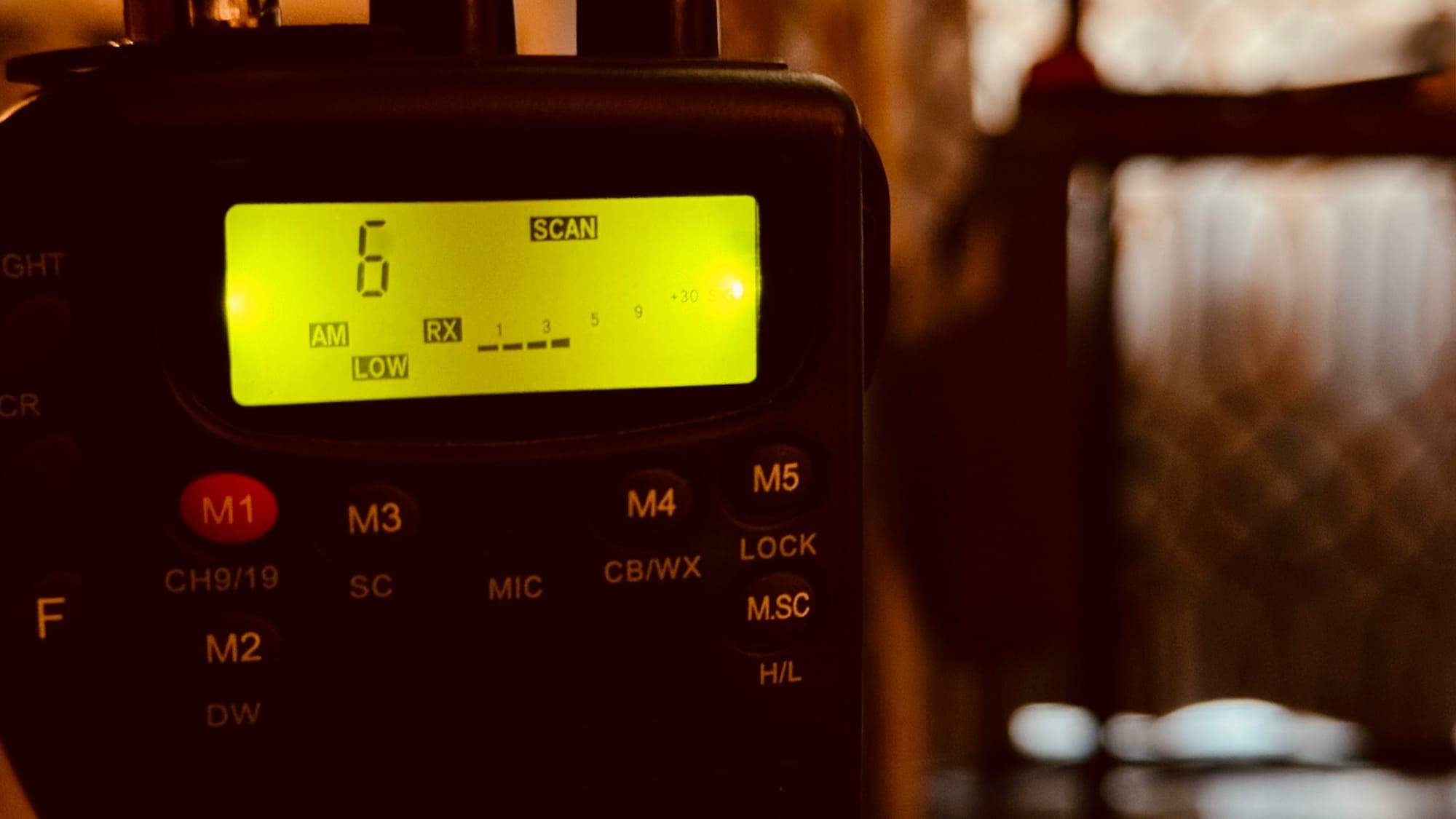I don’t know what i’m doing but it’s working.
Cobbled together a radio station with eBay leftovers and curiosity. Didn’t expect much. Got disco pirates, weather loops, and the occasional existential crisis. Honestly? Not a bad trade.

Before we get into it:
I’m not here to log my life. This isn’t a journal. You’re not only going to get updates on my old man health issues — even if the first few posts might suggest otherwise.
But I am interested in the stuff brains won’t let go of — questions, odd ideas, moments that echo a little longer than they should. If something here—or anywhere—catches your attention or gets under your skin, send it my way:
📬 napkin@jeremyfuksa.com
No feedback form. Just an open line. Scribble something on the napkin. Fold it. Send it.
Growing up, when I couldn't sleep, I just listened.
Oklahoma nights gave me wind and highway noise outside my window, and a twitchy little AM dial that pulled strangers out of the dark. Ball games from cities I’d never seen. Preachers yelling into the void. Mariachi music drifting across borders like it didn’t care who was listening. Most of it faded fast. But I stayed with it. It felt like eavesdropping on the edge of the world.
In college, I landed in broadcast radio. At first I was just talking. But then I got pulled behind the scenes — the engineer handed me a soldering iron and just said, "See if you can fix that." I gave it a shot and mostly made smoke. He stepped in and made it work. And I watched.
We kept the station alive with parts from RadioShack. Schematics on napkins. Labels in Sharpie. Half-functioning boards, patched together with a mix of guesswork and gut sense. I didn’t understand it all, but I could tell when something worked.
And it carried. Not as a skill, exactly. More like a way of getting by. I’ve never had formal training in anything I’ve done. I just did what felt right, and noticed when things clicked, even if I couldn’t tell you how or why.
With Scouting on the sidelines, there's more time on my hands. I hadn’t thought much about radio since those college days, but the idea faded back in — first as a flicker, then as something harder to ignore.
So I leaned in.
Not to transmit (although I did get my Technician Class license (KF0NUI), mostly to scratch that tech and engineering itch) but to just listen. You don’t need a license to just listen. But I wanted to understand how it all fit together.
I've pieced together a listening station. I'll tell you about it later, except to say it’s a hodgepodge of cheap import handsets, preowned scanners, and an old PC that crashes just often enough. I've made antennas out of old speaker wire. The whole thing is a house of cards.
But it works.
It hears things.
(And sometimes I do too.)
The bands are quiet compared to what they were. Mobile communications and the internet obviously took a lot out of radio as a tool, and the juicy stuff like police and fire is hidden behind encrypted digital transmissions. But there's still stuff to hear. Old timers talking about their knee replacement. Weather loops. The occasional pirate spinning lo-fi disco into the void. Japanese late night radio. The edge of the world.
Radio scanning is a lot like fishing.
You find a spot. You set up what you’ve got — maybe it’s old gear, maybe it’s barely working. The guy next to you might have thousands of dollars worth of gear. But you've both cast a line into nothing. And now you wait.
Not because you know what you’ll catch, but because you want to be the kind of person who’s there when something bites.
Most days, it’s just noise. But once in a while, the signal comes back strange and sharp and exactly what you didn’t know you were listening for.
